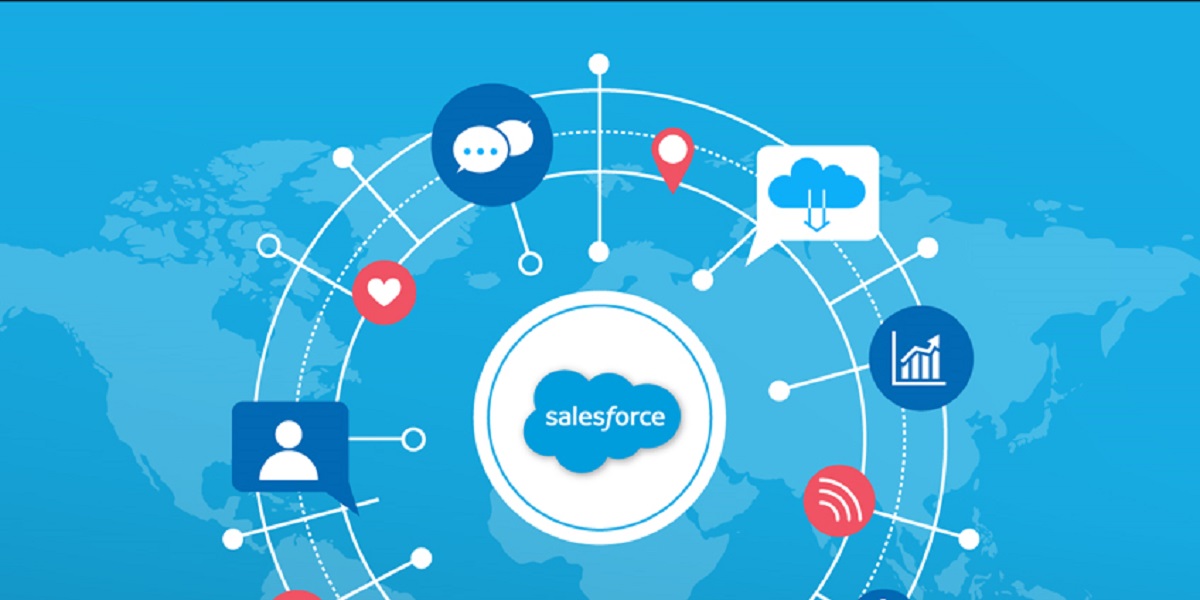Salesforce is a fast-evolving technology, which changes the lookout of all kinds of business processes. From sales to marketing, Salesforce has completely changed the way companies deal with their customers. Basically, Salesforce is a cloud-based #1 CRM platform across the globe to provide a complementary suite of enterprise applications focused on customer services, marketing automations, analytics, and application development.
Salesforce has several capabilities, and all are cloud obviously, so it is quite tricky to realize which cloud to utilize and what’s the distinction. Well, it is quite concerning the Salesforce clouds. Here, we will discuss the Salesforce sales cloud and start the Salesforce venture with this.
Many of us had heard about Salesforce & its sales clouds but mostly don’t know the complete details about it. Before moving ahead, let’s understand the basics of the Salesforce Sales Cloud.
What is Sales Cloud?
As the name implies “sales” so it’s for the sales module in Salesforce. Sales Cloud is a cloud-based technology that enables your salespeople to sell products smarter and proactively to enhance the productivity of your business. In other words, Salesforce sales cloud automated many of the tasks salespeople used to do every day. This means Salespeople can spend less of their time on administrators and more time on closing deals.
Sales Cloud is beneficial for sales managers to analyze the real-time activities of their salespeople. Many companies are hiring Salesforce consulting services, which will assist them in the sales cloud and make their sales process more powerful. Best of all, the Sales Cloud is easy to use and customizable to the way your salespeople work.
Features of Salesforce Sales Cloud
1. Leads Management
Leads in the Sales cloud are potential customers who have shown interest in buying a company’s services or products because of campaigning or out of their interest, but they may be not fully qualified to buy yet. They may be the customers with whom the company has never done any business are they are hence potential customers.
2. Opportunities Management
When the conversations with the account have progressed to the point where you, as a product offering, believe it is the right time to create an opportunity for the business deal, you do so through opportunity management, which is the business deal's formal name.
3. Cases Management
When a business deal is completed, the account is more than likely to come to you with problems they've had with your goods. For example, a laptop's operating system may not be set up properly, or a laptop may have defects. Cases are used to file and track issues raised by clients or consumers.
4. Reports & Dashboards
This section guides you through the process of creating reports and dashboards. In general, senior members of an organization use this section to drill down and see if regular campaigns are taking place if campaigns are winning leads and accounts if marketing promotions are generating good revenue, and so on.
5. Campaign Management
Campaign management in the Sales cloud helps in projecting organizations marketing programs that are targeted to generate more revenue.
6. Accounts Management
Lead cannot be handled by the only person initiating the deal and driving till its closure, there could be more people required to convert the lead from being qualified and here Accounts are welcomed. Accounts are organizations with whom you are going to make your business deal.
7. Contact Management
Once the account is established, a Key person will be required to set up and maintain which needs to be involved and drive the deal. There is an option available in the account section where you can tag the key person according to their needs into your existing account.
Benefits of Salesforce Sales Cloud
- Get instant insight through automated capture data, such as top leads, suggested actions, and next steps.
- Get a complete overview of customer behavior from account history, customer communication to internal account discussions.
- Get customer insight from popular social media channels like Facebook, Twitter, etc.
- Uses the latest technology such as AI, and automation to sell smarter and close deals faster.
- Accelerate productivity with a flexible user experience.
Wrapping it up!
Now it is clear that Salesforce Sales cloud is an essential tool to enhance any given sales process as it’s not only provided more sales equipment at its disposal but also adds a lot of structure to each aspect of the process to make it much simpler.
No doubt, Salesforce is an outstanding CRM solution. So, if you want to streamline your workflows, centralize your company’s sales data, and use your more data to generate leads, then yes, Sales Cloud is a good choice, no matter the size and vertical of companies. It comes in four different versions, allowing you to choose the one that best suits your needs, and the platform's customization options ensure that your Sales Cloud CRM setup is unique. While there are many advantages to Sales Cloud, you should conduct thorough research or hire a Salesforce consulting firm to do so for you to ensure that you make an informed decision that will benefit you and your company.
Read more posts,
Power BI Vs. Tableau – Comparison Of Self-Service BI Tools
Xamarin vs React Native: Which Is Better In 2021?
Top Ways to Boost Up Digital Marketing ROI for Your Business

